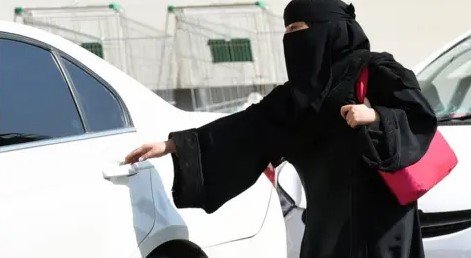UN Expert Denied Access to Aging Detainees During Official Country Visit
A 70-year-old Saudi academic has died behind bars, stirring outrage over medical neglect and the treatment of elderly prisoners. This happened even as the country welcomed a UN expert to inspect human rights conditions. But not everything went as promised.
Qasim al-Qathrdi passed away on April 29, 2025, in Saudi custody. His death has raised serious questions—ones the Saudi government may find harder to dodge this time.
A Death That Didn’t Need to Happen
Qasim al-Qathrdi wasn’t a criminal in the traditional sense. He was a scholar. A preacher. A man who used words, not weapons. Yet he was arrested in 2021 and sentenced to eight years in prison for charges vaguely tied to “disrupting public order.”
His health had been declining for months, if not years. SANAD Organization for Human Rights claims authorities repeatedly ignored his condition. Not only was he denied bail, they say he wasn’t given the medical care he clearly needed.
One sentence in SANAD’s statement stands out: “His death, the result of apparent deliberate medical neglect… is not an isolated incident.” That alone speaks volumes.

UN Expert Locked Out
Ironically, al-Qathrdi died while the United Nations Independent Expert on the enjoyment of all human rights by older persons was visiting Saudi Arabia.
She was invited. She came. But when she asked to visit aging prisoners—specifically prominent clerics Safar Al-Hawali (75) and Salman Al-Ouda (69)—she was flatly denied. Authorities at al-Ha’ir prison said no.
That’s not just bad optics. It’s a direct violation of the rules that govern official UN visits. If you invite an international expert to examine your house, then slam the door shut on certain rooms, what are you hiding?
One short paragraph from her official remarks cut to the core: “Refusing access violates the terms of reference for country visits.” No wiggle room there.
Conditions Behind Bars Still a Mystery
We don’t know how many older prisoners are currently being held in Saudi Arabia’s maximum-security facilities. The government didn’t provide that number to the UN. They only said there are no elderly women inmates.
This lack of transparency is exactly what’s driving outside pressure. If there’s nothing wrong, why is everything so hush-hush?
In recent years, human rights groups have repeatedly highlighted concerns over:
-
Denial of timely medical treatment
-
Isolation from family and legal counsel
-
Harsh sentencing for nonviolent speech
And while these problems affect all detainees, the risks are magnified for the elderly.
A History of Silencing Dissent
Qasim al-Qathrdi’s name joins a growing list of thinkers, clerics, and activists silenced in Saudi Arabia. He wasn’t the first, and unless something changes, he won’t be the last.
Here’s a look at some prominent older prisoners still behind bars:
| Name | Age | Known For | Status |
|---|---|---|---|
| Safar Al-Hawali | 75 | Cleric, writer, critic of Crown Prince | Detained |
| Salman Al-Ouda | 69 | Reformist preacher, social commentator | Detained |
| Sulaiman al-Rashoodi | 81 | Former judge and political activist | Released (2017), but under restrictions |
The government often uses vague charges like “inciting public disorder” or “supporting terrorism” to justify their detention. But critics argue these are nothing more than tools to suppress dissent.
International Pressure Ramping Up
The UN visit was supposed to be a gesture of goodwill. Instead, it exposed deeper cracks.
Samer Alshumrani, operations manager at SANAD, made his concerns clear: “We are sounding the alarm over the danger facing older prisoners.” And with good reason. Aging detainees often suffer chronic illnesses, and a lack of adequate care can be a death sentence.
Global rights watchdogs aren’t letting this slide either. Human Rights Watch has demanded immediate changes—from medical treatment guarantees to regular independent monitoring of prisons.
In the face of mounting pressure, the Saudi government remains mostly silent.
No Apology, No Explanation
So far, no official comment has come from Riyadh about al-Qathrdi’s death. Not a word of condolence. Not a hint of reform. Nothing.
And that silence is loud.
The situation poses a test not just for Saudi Arabia, but for its allies. Will powerful partners like the UK or US raise concerns behind closed doors? Or will they keep their focus on trade deals and strategic alliances?
Nobody’s expecting overnight reform. But ignoring these warning signs, especially when lives are at stake, will only deepen the damage.
